Endorsements
“Sam Renihan has served the church well on at least two fronts recently— one historical and the other biblical. His recently published doctoral dissertation, From Shadow to Substance, is an excellent historical survey of the development of seventeenth-century Particular (“Calvinistic”) Baptist covenant theology. His most recent work, The Mystery of Christ, in some senses, is a biblical presentation of the issues covered in his dissertation. The Mystery of Christ is well-written, displays ample knowledge of issues discussed concerning covenant theology by Baptists and paedobaptists, grounds its arguments in scriptural exegesis and theology, recovers old arguments for a new day, presents a cohesive map of the covenants of Scripture, and exalts our Lord Jesus Christ, the last Adam, throughout. Scholarly but never dry; exegetical but never pedantic; pastoral and practical but never trite; this is a fine work.”
Richard C. Barcellos
Pastor of Grace Reformed Baptist Church, Palmdale, CA, and Associate Professor of Exegetical Theology at IRBS Theological Seminary, Mansfield, TX. He is the author of Getting the Garden Right: Adam’s Work and God’s Rest in Light of Christ and The Lord’s Supper as a Means of Grace: More than a Memory.
__________
“What is this book good for?
It establishes a clear linear understanding of the biblical text in its purpose of driving the reader to see how faithfully God executes His purpose in creation. The covenantal framework from Adam to Christ, from creation to consummation is a most apt way of seeing the flow of the entire biblical text. One is lifted into the journey to see the entire scope of divine providence work out the divine decree from generation to generation, book to book, event to event, person to person.
This book serves for an excellent and rich primer on covenant theology and demonstrates how it leads from the Covenant of Redemption to the final claiming and purifying of the people given by the Father to the Son. Profession of faith, baptism, Lord’s Supper, and church discipline all are practiced as an expression of consistency with the eternal purpose of God in covenant. In this book one may come to a firm and clear grasp of such important ideas as continuity and discontinuity, positive law in relation to natural/moral law, Covenant of Works in relation to the Covenants of Redemption and Grace, and the finality of Christ as the one who consummates all the covenantal arrangements by His person and work.
This book is delightful to the point of entertainment to see how fittingly biblical texts open their meaning in the context of these covenantal discussions. How pertinently both biblical exposition and theological synthesis tie together the microcosm and macrocosm of Scripture finds the point of integration in the theme of covenant. Renihan’s writing also adds to the charm of this seriously theological work. Some of the most powerful points of synthesis have a literary lilt that gives memorable power to the overall argument: “God swept Israel off its feet as their redeemer, their husband, here to take her home to safety and blessing and prosperity, ready to shower her with good gifts.” “Egypt’s religion was… ancient, beautiful, artistic, creative, and tangible…. It is no surprise, then, that Israel broke the covenant only days after its pledge to keep the same. You can take Israel out of Egypt. But you can’t take Egypt out of Israel.” “God was so very kind to Israel, as seen in its history. But Israel was utterly faithless.” “They failed to realize just how much the New Covenant would not be like the Old Covenant, and why that was such a blessed reality.” “[T]he study of the mystery of Christ, His covenant, and His kingdom is a devotional experience. It is a way of wonderment, a path of praise. It is a balm, a salve, a nepenthe, a panacea, a cordial, a precious remedy, a sweet medicine, ‘a sure and steadfast anchor for the soul’ (Hebrews 6:19).”
Indeed, it is so; and Renihan’s organization, insight, and style gives the reader every opportunity to see this.”
Tom Nettles
Retired Professor of Historical Theology at The Southern Baptist Theological Seminary, Louisville, Kentucky
__________
“The themes of covenant and kingdom have always been crucial to Reformed thought, and Reformed theologians will surely be pondering and debating these issues until Christ returns. In this new volume, Sam Renihan offers a clear and engaging study that should help to keep this conversation going. One of the most useful things Renihan does—which readers across the Reformed spectrum should appreciate—is keep covenant and kingdom together, not as independent themes but as themes that absolutely depend on one another. While I am in no position to say how confessional Reformed Baptists should regard Renihan’s work, I know that I, as a Presbyterian theologian, will from now on look to his book as a prime resource for Reformed Baptist covenant theology.”
David VanDrunen
Robert B. Strimple Professor of Systematic Theology and Christian Ethics, Westminster Seminary California
__________
“In The Mystery of Christ Samuel Renihan offers a compelling narrative arguing that the biblical witness coheres in the covenantal kingdom of its central character, Jesus Christ. While Renihan capably contributes to the growing literature of “progressive covenantalism,” he smoothly evinces a truth heretofore largely downplayed: Covenantal theology was the major biblical theology paradigm for Baptists at their beginnings in seventeenth century England. This sharp young theologian is also to be commended for preserving a high view of Scripture while taking the historical nature and literary aspects of divine revelation seriously.”
Malcolm B. Yarnell III
Research Professor of Systematic Theology, Southwestern Seminary, and author of The Formation of Christian Doctrine, Royal Priesthood in the English Reformation, and God the Trinity: Biblical Portraits
__________
“Sam Renihan has written a clear, concise and forthright account of the covenants, their history and their theological and religious significance. This has required skills in theology, exegesis and biblical history, including the study of the place of typology in the Old Testament as this was made plain in the anti-types of the New Testament. It is not surprising that these topics, viewed together, are of some complexity, and without careful attention, the seeds of misunderstanding will quickly grow and entangle. So, a reliable guide, such as the author has provided, is indispensable.
Another emphasis of the book is on the Mystery of Christ. Not only in the culmination of the Father’s covenantal purposes and in the Incarnation and self-offering of the incarnate Son, the one whose saving power is now seen to be active in the calling of the Christian church, His Kingdom. But from the New Testament, Christ is seen to have been retroactively at work in the faith of the saints of ancient Israel and Judah, and of the pre-Christ Gentiles who together formed the faithful remnant ‘chosen by grace’ during the Old Testament. For Christ, appearing in ‘the fullness of time, is the fulcrum of the eternal Covenant of Redemption, and so He is the Redeemer of the elect in every epoch, the same yesterday, today, and forever. Dr. Renihan has further enlivened and enriched his account by numerous historical allusions and quotations mainly from his beloved English Particular Baptists of the seventeenth century. Such a book, so carefully written, requires an equally careful reading. The book will richly repay its readers who take their time to weigh the author’s words.”
Paul Helm
Emeritus Professor of the History and Philosophy of Religion, King’s College, London
__________
“In recent years the gospel church’s discussion of these matters has been enriched by the appearance of Reformed Baptist literature, numbers of excellent new books have rolled off the presses, and in this latest book, written by Dr. Samuel Renihan, we find a considerably important contribution to the issue. It is necessary reading, especially for theological students and thoughtful men who are profiting much from the fellowship, preaching and godly lives of our paedo-baptist brothers, both those alive today and those whose ministries over the centuries we have greatly profited from.”
Geoff Thomas
Assistant minister in Amyand Park Baptist Chapel, London
Contents
Preface
Part One: Methodology and Hermeneutics
Chapter 1: Biblical Theology and Systematic Theology in Covenant Theology
Introduction
1. Scope and Simplicity
2. Creation, Covenant, and Consequences
3. The Law and the Gospel
4. History and Mystery
Conclusion
Chapter 2: Typology
Introduction
1. What is Typology?
2. The Relation between a Type and its Antitype
a. Types reveal something greater, and other, than themselves
b. Types function on two levels
c. Types terminate in their antitypes
d. Types are positive and negative
3. The Application of Typological Principles
Conclusion
Chapter 3: Covenant and Kingdom
Introduction
1. What is a Covenant?
a. The definition of a covenant
b. Covenant sanctions
c. The matter and form of a covenant
d. Federal headship
2. What is a Covenant’s Function?
Conclusion
Part Two: The Kingdom of Creation
Chapter 4: The Covenant of Works
Introduction
1. Man’s Created Condition
2. Man’s Covenantal Condition
a. God placed Adam in the garden of Eden
b. God appointed Adam federal head over his natural offspring
c. God obligated Adam to a law of obedience
d. God promised eternal life to Adam
e. God threatened Adam with sanctions
f. God made a covenant of works with Adam
g. God tested Adam’s obedience
3. Man’s Cursed Condition
a. Death
b. The abrogation of the covenant of works
c. A merciful curse
4. The Protological Nature of the Kingdom
Conclusion
Chapter 5: The Noahic Covenant
Introduction
1. A New Creation and Commission
2. A Judicial Retribution
3. A Promised Preservation
4. A Common Cursed Kingdom of Common Grace
Conclusion
Part Three: The Kingdom of Israel
Chapter 6: The Abrahamic Covenant
Introduction
1. The Initiation of the Covenant
a. The federal head
b. The inheritance of Canaan
c. The blessing for the nations
2. The Confirmation of the Covenant
3. The Expansion of the Covenant
4. The Realization of the Covenant
5. The Foundation of the Old Covenant
a. The Abrahamic Covenant anticipates the Mosaic Covenant
b. The Abrahamic Covenant anticipates the Davidic Covenant
c. The Abrahamic Covenant anticipates the New Covenant
d. The Abrahamic Covenant echoes Eden
Conclusion
Chapter 7: The Mosaic Covenant
Introduction
1. The Context of the Covenant
a. The promise of oppression and affliction
b. The promise of liberation and fulfilment
2. The Kind of Covenant
a. Its laws
b. Its promises
c. Its threats
3. The Kindness of the Covenant
a. The absolute dominion of God
b. The promises to Abraham
c. The sacrificial system
d. The history of Israel
4. The Function of the Covenant
a. The covenant governs the people
b. The covenant governs the priesthood
c. The covenant governs the kingship
d. The covenant governs the prophets
e. The covenant governs blessing and cursing
Conclusion
Chapter 8: The Davidic Covenant
Introduction
1. The Context of the Covenant
a. The promises of the Abrahamic Covenant
b. The problems of the Mosaic Covenant
c. The preference of the people
d. The prospect of consummation
2. The Blessings of the Covenant
a. An established throne
b. Rest and prosperity in Canaan
c. The presence and protection of God
3. The Conditions of the Covenant
a. Guard God’s sanctuary
b. Keep God’s law
c. Represent God’s people
4. The Sanctions of the Covenant
a. The judgment of God Himself
b. Expulsion from the land of Canaan
Conclusion
Chapter 9: The Messiah of the Old Covenant
Introduction
1. The Messianic Purpose of the Old Covenant
2. The Messianic Hope of the Old Covenant
a. The present Messiah
b. The future Messiah
3. The Messianic Promise of a New Covenant
4. The Messianic Inclusion of the Nations
5. The Typological Nature of the Kingdom
Conclusion
Part Four: The Kingdom of Christ
Chapter 10: The Ministry of the Christ
Introduction
1. The Gospel of the Kingdom
2. The Kingdom of Heaven
3. The King of the Kingdom
Conclusion
Chapter 11: The Covenant of Redemption
Introduction
1. The Parties of the Covenant
2. The Commitments of the Covenant
a. The Son’s commitments
b. The Father’s commitments
3. The Fulfillment of the Covenant
Conclusion
Chapter 12: The New Covenant of Grace
Introduction
1. The Establishment of the New Covenant
2. The Blessings of the New Covenant
a. Justification
b. Regeneration and Sanctification
c. Adoption and Preservation
d. Resurrection and Glorification
3. The Foundation of the New Covenant
4. The Kingdom of the New Covenant
5. The People of the New Covenant
Conclusion
Chapter 13: The Mystery of Christ
Introduction
1. The Unity of God’s Plan
2. Israel, Christ, and the Church
a. Israel
b. The Christ
c. The Church
3. The Continuity of the Law and the Gospel
Conclusion
Chapter 14: The Eschatological Nature of the Kingdom
Introduction
1. The Kingdom Inaugurated
2. The Keys of the Kingdom
a. Joining the kingdom through the covenant
b. Guarding the kingdom through the covenant
c. Traitors of the kingdom
3. The Sacraments of the Kingdom
a. Baptism
b. The Lord’s Supper
4. The Kingdom Consummated
Conclusion
Conclusion
Bibliography

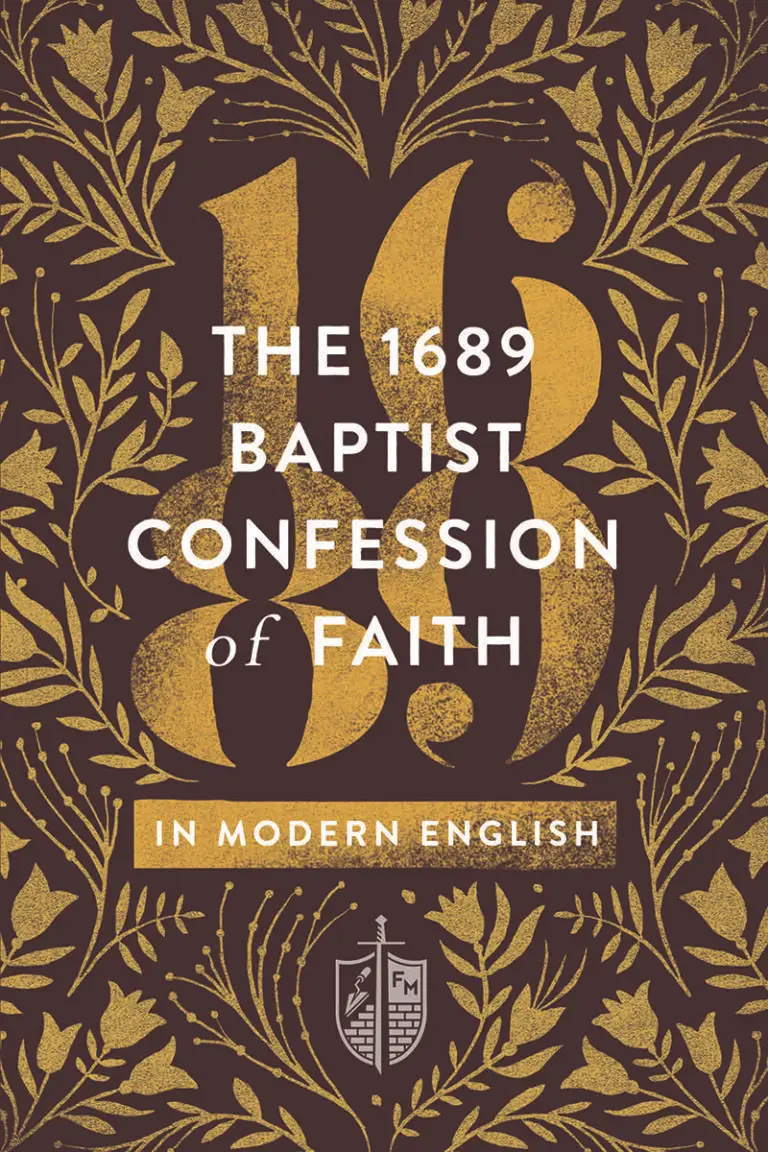







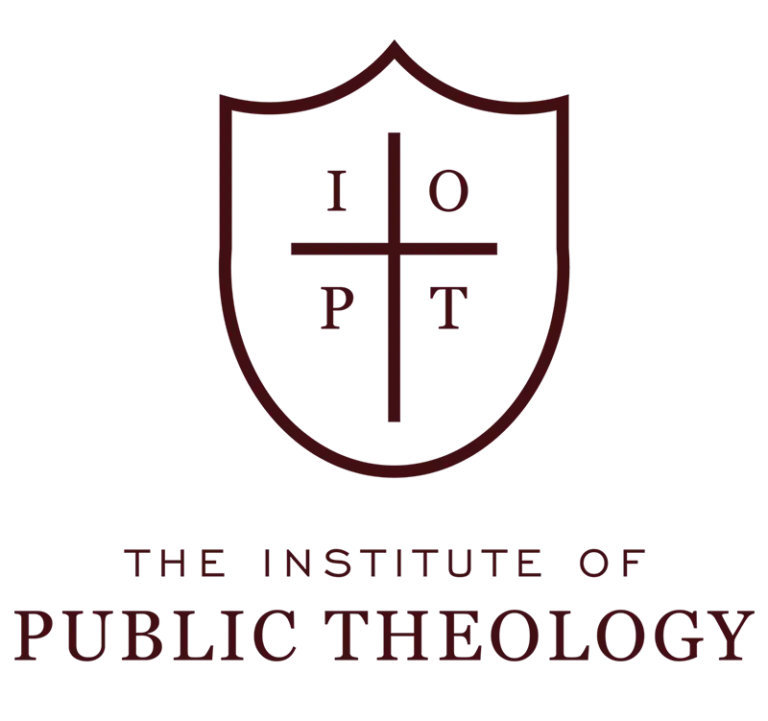


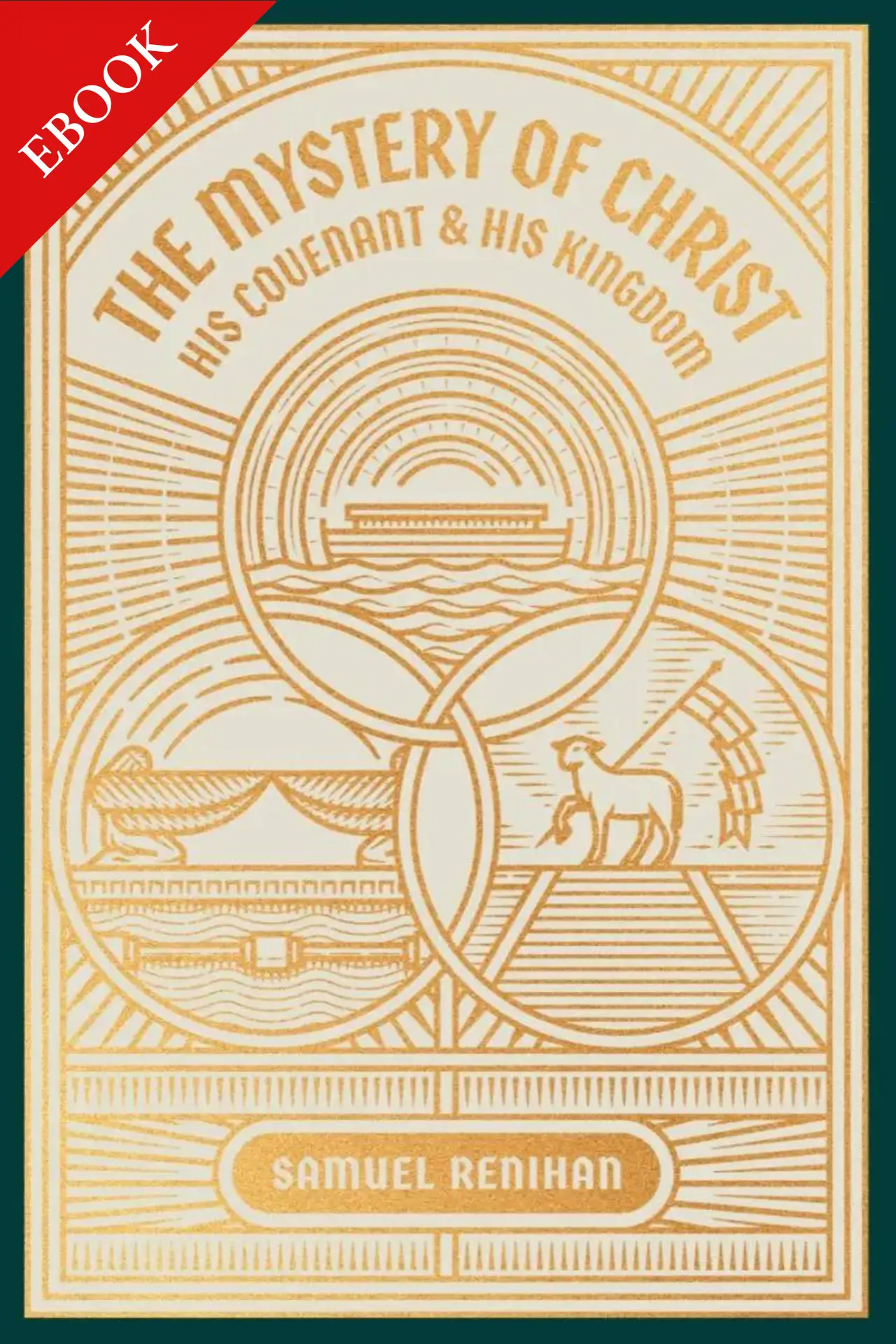

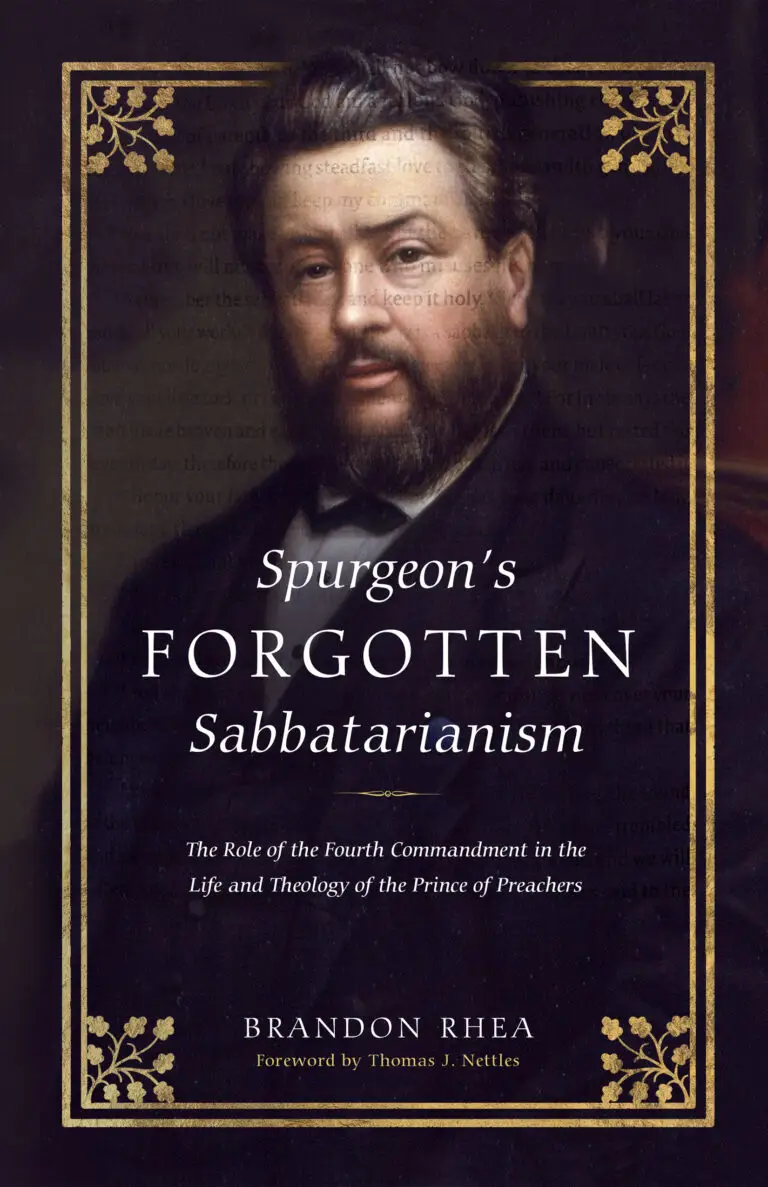
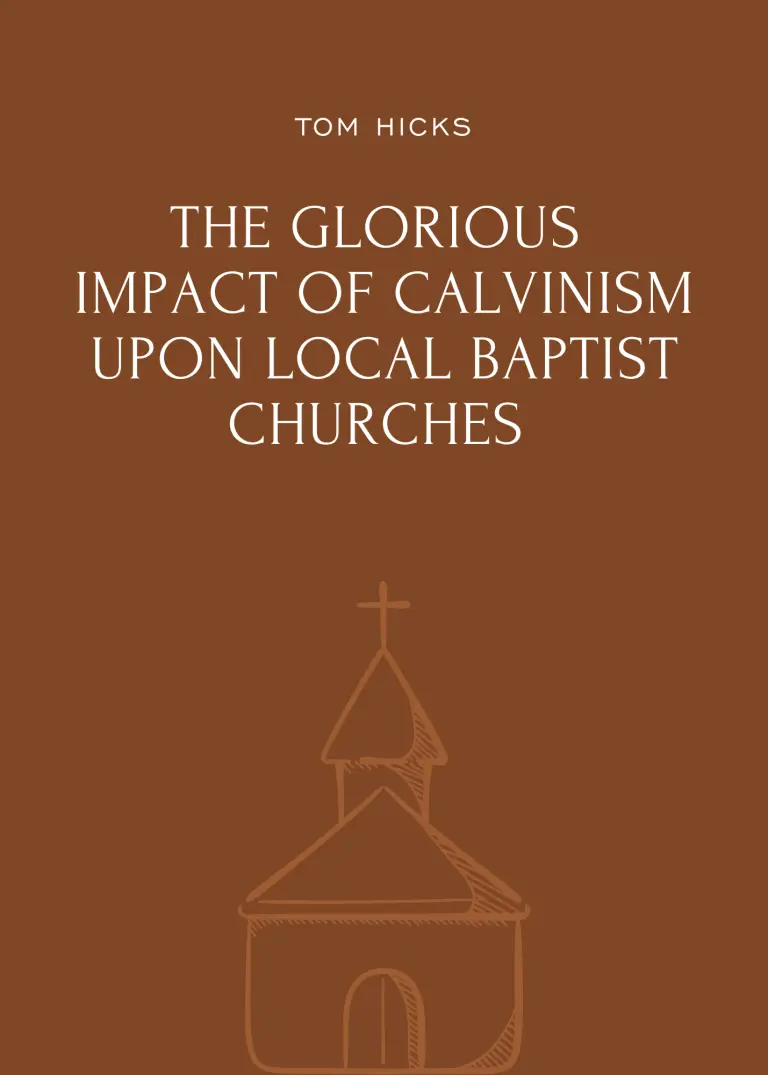
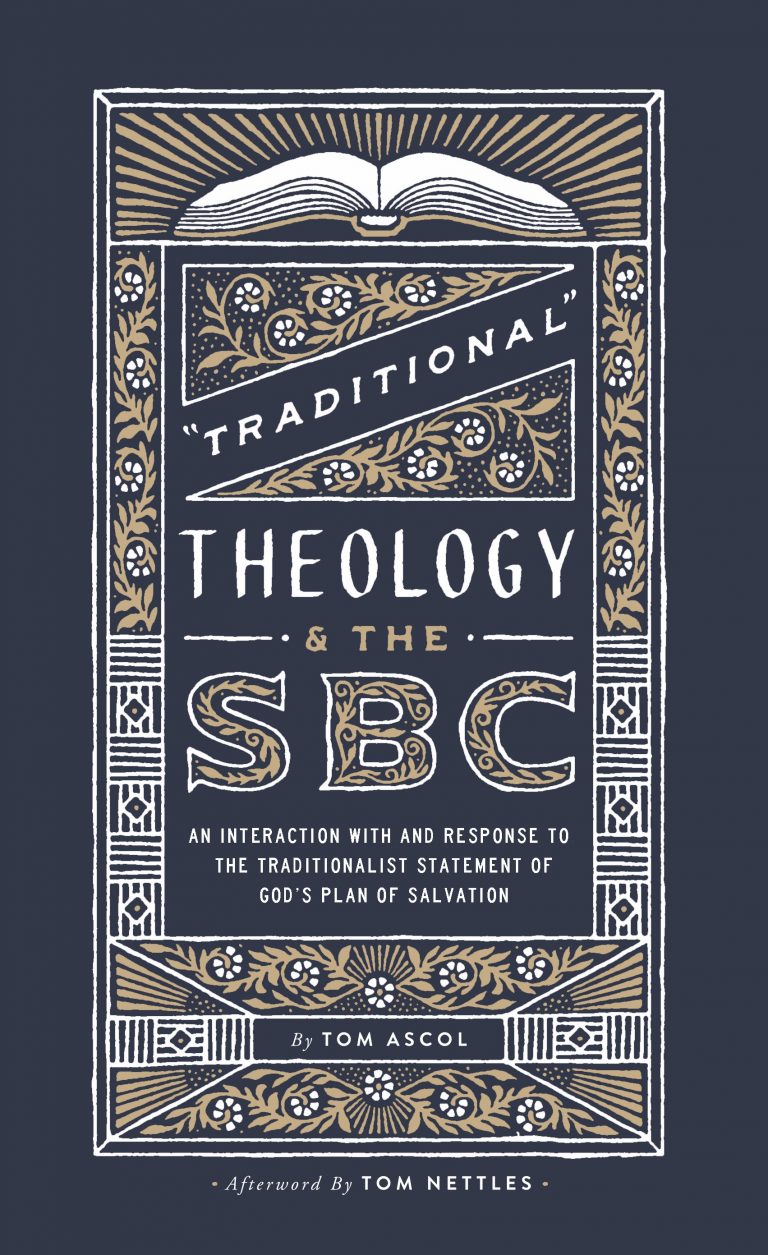
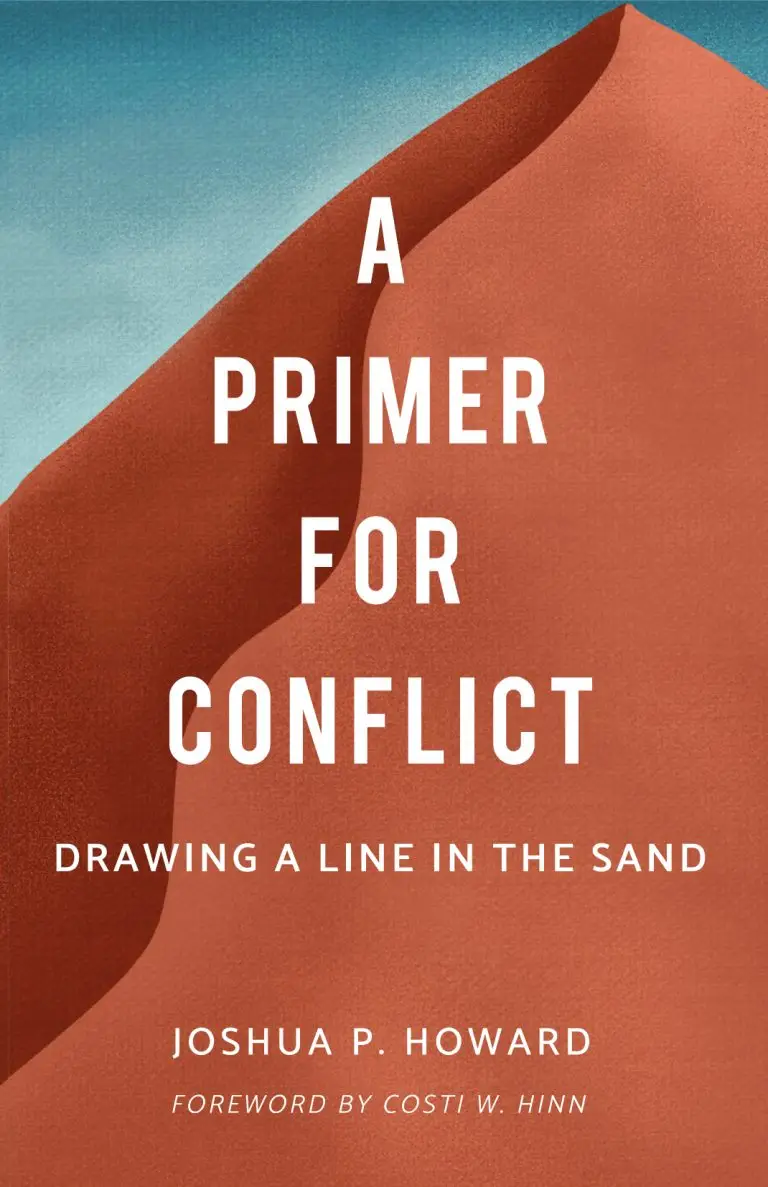




Reviews
There are no reviews yet.